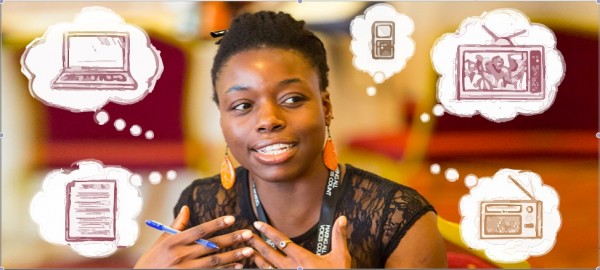A new report published this week documents the first Learning and Inspiration Event hosted by Making All Voices Count at which people with different kinds of expertise came together to think collaboratively about how technology can be used to enhance citizen engagement and improve government responsiveness.
Programme Manager for Research, Evidence and Learning, Duncan Edwards explains the ideas behind the event and the report itself.
Making All Voices Count is a programme looking to find and support new ways for the voices of ALL citizens to really count in shaping the way their governments govern. The programme’s approach fosters and nurtures new and emerging ideas through learning, financial support, and the brokering of new relationships that are key to their success.
The event held in Dar es Salaam, Tanzania, was timed to coincide with the start of the 32 new initiatives the programme is supporting that were identified through the programme’s Open Call (September – November 2013) and the winners of the Global Innovation Competition (November 2013 – April 2014). Over three days, participants were encouraged to develop more nuanced understandings of different forms of inclusion and exclusion, consider the role of voice, mediation and listening, and think more deeply about what it might take for governments to respond to citizens’ demands, with ‘power’ a common thread weaving these related areas together.
As event organisers, we wanted to tackle the scarcity of evidence in the field of transparency and accountability unearthed as part of our analysis of the proposals to the Open Call and the Global Innovation Competition. A reoccurring theme throughout the Open Call for proposals and competition submissions was that many of these initiatives did not demonstrate how they were engaging with the evidence and experience that already exists. One of the key aims of the event was to engage participants with the prevailing evidence, better understand the way in which participants might engage with it, and look at how we could support evidence built from practice.
Another key observation from the analysis was that many initiatives seemed to lack the collaborations necessary to be more transformative, for example techies not working with social activists and media organisations, and very little collaboration with governments. We felt this was due in part to a different ‘life-world’ problem – people approaching issues from very different perspectives and ideologies, which can make constructive collaboration difficult. As a result, the event aimed to surface some of these differences and develop understanding to bridge these different groups.
Everyone who attended came with something to share and something to learn. From how governments in different parts of the world work, to the creative ways in which citizens are trying to reach them; from the design of innovative channels of communication, to how funding gets to the ground. The report captures and shares this learning with the intention of provoking further thought and discussion amongst participants and others interested in technology for transparency and accountability. The report also features some of the techniques and exercises used to facilitate learning so that others can use them to critically reflect their own practice.
The Making All Voices Count programme looks to foster learning to leave a legacy whereby practitioners are openly sharing learning from their experiences of success and failure. We hope this is a good start.
Read Bridging and Bonding: Improving the links between Transparency and Accountability actors
